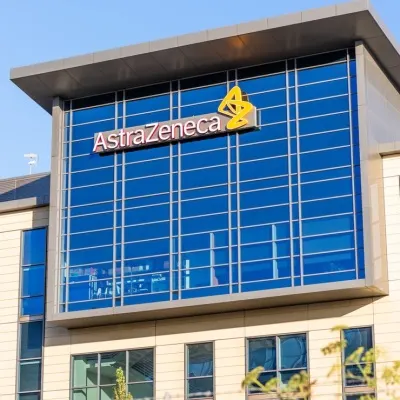AstraZeneca’s COVID-19 vaccine has been the centre of attention in Europe over the past few days. Several countries has suspended its administration after reports of a number of thromboembolic events and several deaths. This has been exacerbated by the company’s inability to meet its contractual obligations in the EU on the medicine delivery.
You might also like: The European Medicines Agency (EMA) has launched a rolling review of the Russian Sputnik V vaccine.Learn more
The first to suspend the use of the AstraZeneca vaccine on 7 March was Austria where several thromboembolic event cases were reported and one person died after being vaccinated. The measure is in place for two weeks while the case is being investigated.
As of 10 March, 30 cases of thromboembolic events had been received among about 5 million people who were administered the AstraZeneca jab in the EEA countries.
The blood clotting events in Austria were reported for the batch numbered ABV5300 comprising 1 million doses of the vaccine. Among the countries that have received the batch are also Bulgaria, Cyprus, Denmark, Estonia, France, Greece, Iceland, Ireland, Latvia, Lithuania, Luxemburg, Malta, the Netherlands, Poland, Spain and Sweden.
Reacting to the news, the European Medicines Agency (EMA)
and MHRA,
the UK’s regulatory body, underscored that there was no indication of a link
between vaccination and thromboembolic events. Although a quality defect is considered unlikely at
this stage, the batch quality was investigated by the Pharmacovigilance
Risk Assessment Committee (PRAC), the EMA’s safety committee. The review of
thromboembolic events with COVID-19 Vaccine AstraZeneca was carried out in
the context of a safety signal, the agency said in a statement
noting that “[t]he information available so far indicates that the number of
thromboembolic events in vaccinated people is no higher than that seen in the
general population”. Some experts expressed similar opinions.
However, Having reviewed 41 reports of possible anaphylaxis seen among around 5 million vaccinations in the UK, PRAC considered that a link to the vaccine was likely in at least some of these cases. PRAC has recommended to update the product information to include anaphylaxis and hypersensitivity (allergic reactions) as side effects with an unknown frequency (anaphylaxis is already included in the product information for the AstraZeneca vaccine as a potential risk). It is also recommended that the existing warning should reflect that cases of anaphylaxis have been reported.
Other countries followed Austria’s example, including Denmark, Norway, Iceland, Estonia, Lithuania, Luxembourg, Italy, Latvia, Bulgaria, Cyprus and Ireland in Europe, and Thailand in Asia. Some postponed the AstraZeneca vaccine rollout altogether while others suspended only particular batches, as a precautionary measure. At the same time, the UK, France and Germany said they would continue to use the AstraZeneca vaccine.
In the U.S., AstraZeneca is yet to receive the FDA authorisation for emergency use of its COVID-19 vaccine. It is preparing to file for it before early April. Last year, the U.S. has secured 300 million doses of the vaccine.
AstraZeneca has also pledged substantial amounts of the vaccine to the COVAX programme, and the World Health Organization (WHO) has backed its use after the suspension reports.
The decisions to suspend the use of the AstraZeneca vaccine in the European countries is another major blow to the vaccination campaign in Europe. The EU lags behind other countries, such as Israel, UAE and Chile that are leading globally in vaccination doses administered per capita (as of 13 March). This is happening at the same time as AstraZeneca admitted on March 12 to be “disappointed to announce a shortfall in planned COVID-19 vaccine shipments to the European Union (EU) despite working tirelessly to accelerate supply”. EU Internal Market Commissioner Thierry Breton noted that it was “time for AstraZeneca’s Board to exercise its fiduciary responsibility and now do what it takes to fulfil AZ’s commitments” and later stated that thanks to the increased vaccine manufacturing by Pfizer, the EUwill be able to maintain its vaccination targets.
In addition, on 12 March EMA approved the single-dose COVID-19 vaccine for use in individuals 18 years of age and older in the EU. Three more medicines – Sputnik V (Gam-COVID-Vac), CureVac (CVnCoV) and Novavax (NVX-CoV2373) are currently under EMA’s rolling review.
Image credit: Sundry
Photography via iStock
Last updated: Mon, 15 March 2021










